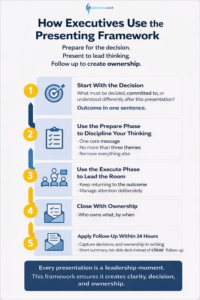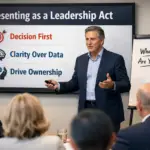Find your true purpose
Why true purpose isn’t a slogan — and how to sense, not invent, your direction
Purpose is everywhere. It’s become one of the most used — and misused — words in leadership and business today. Organizations proudly call themselves “purpose-driven,” crafting carefully written statements that sound morally correct and socially responsible. Individuals do it too. We write personal purpose sentences for CVs, coaching programs, or leadership profiles. But more often than not, these statements come from the head, not the heart. They sound right — but they don’t feel alive.
I’ve been there myself. I remember sitting with a blank page, thinking, what would sound inspiring? what would others expect from me? Every sentence felt forced, designed to fit someone else’s view of meaning. I later realised: that’s not purpose — that’s positioning. True purpose isn’t found in what sounds right. It’s discovered in what feels inevitable.
What deep purpose really is
Deep purpose is not something you create; it’s something you sense. It’s a quiet inner knowing that calls you forward, even when it doesn’t make logical sense. Frederic Laloux, author of Reinventing Organizations, describes it beautifully: “Purpose is the thing that forces you to make choices.”
That word — forces — is key. Purpose isn’t about comfort or image. It pushes you. It makes you say “yes” when you could stay safe, and “no” when the world expects you to comply. It aligns your energy and attention toward what really matters, even when it costs you something.
Laloux explains this concept in a short and insightful video: Frederic Laloux – Deep purpose and how it finds you. In it, he shares how true purpose arises not from ambition or intellect, but from sensing what life is asking of you — something larger, quieter, and far more powerful than any goal.
When purpose is genuine, it shows up in action. It doesn’t sit on a wall or a website — it lives in how we lead, what we prioritise, and what we’re willing to stand for.
The role of sensing, not thinking
Purpose doesn’t start in the mind. The mind is often too noisy, too conditioned by expectations, too eager to rationalise. Purpose emerges from sensing — from awareness of what resonates, energises, and feels undeniably true.
This requires reflection and self-discovery. It’s the same inner work I describe in Strong emotions aren’t the problem — your frame is. Learning to pause and sense what your emotions are trying to tell you is also how you sense purpose. When you strip away fear, ego, and external validation, what remains is a quiet but steady signal: this is mine to do.
Self-discovery isn’t about becoming someone new — it’s about remembering who you already are, beneath layers of roles and expectations. The American English Dictionary defines it as “a becoming aware of one’s true potential, character, motives…” That awareness doesn’t come through performance reviews or job titles, but through honest reflection and courageous choices.
The journey to deep purpose
Finding purpose is not a straight line. It’s a journey of cleaning up, letting go, and realigning. You revisit old experiences — good and bad — and see how they shaped you. You face fears, confusion, and doubt. You confront your own ego and how much of your drive has been external — recognition, approval, control.
It can be uncomfortable. Sometimes it means reshuffling not only your inner world but your outer one too — relationships, habits, even your career path. But on the other side of that discomfort lies clarity, direction, and a sense of peace that doesn’t depend on circumstances.
Once you align with deep purpose, decision-making becomes simpler. Not easier, but simpler. Because you know what’s yours to do — and what isn’t. You stop chasing everything that looks appealing and start committing to what feels true.
This is also where leadership and purpose meet. In Leading in a VUCA world, I wrote about how uncertainty and volatility test leaders’ clarity and authenticity. Purpose is the antidote. In VUCA environments, purpose becomes your internal compass — the constant in a world of motion. When leaders connect with deep purpose, they create stability not through control, but through coherence. Teams can feel it. Purpose-centered leadership creates trust and focus, even amid chaos.
Purpose as leadership practice
In my coaching and leadership development work, I help leaders and teams explore their individual and collective purpose — not as a branding exercise, but as an act of alignment. We do this through reflection, dialogue, and sensing — discovering what truly energises the team and how that connects to the organisation’s broader mission.
This process always involves three layers:
personal purpose – what drives you as an individual, beyond roles or ambitions.
team purpose – what your team contributes uniquely to the whole system.
organizational purpose – how the collective serves something larger than itself.
When these three align, energy flows naturally. Work feels lighter because it’s meaningful. Change becomes easier because it connects to something beyond compliance or KPI pressure. Purpose is not a motivational speech; it’s a structure for making better choices.
This is what I often call leading from within — connecting who you are to what you do and how you lead. It’s the bridge between reflection and action, between inner clarity and external impact.
Reflection for leaders
When was the last time you made a decision that felt deeply right, even if it wasn’t easy? What is quietly calling you that you’ve been postponing? What would change if you trusted that inner signal more often?
Work with me
In my coaching programs, I help leaders and teams reconnect with what truly matters — their deep purpose. Together we explore how purpose can guide decisions, strengthen culture, and create focus in a fast-moving world. 👉 Contact me here




